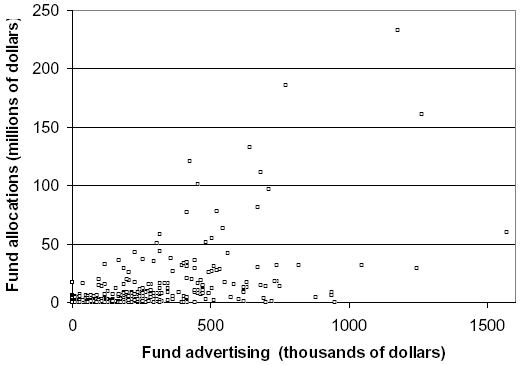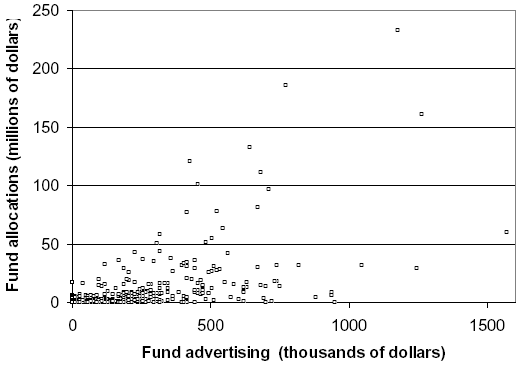Do the billions of dollars of annual mutual fund advertising work to attract investors? If so, are the appeals rational or emotional? Does the advertising connect investors with the right funds? In his July 2006 paper entitled “Advertising and Portfolio Choice”, Henrik Cronqvist examines how mutual fund industry advertising affects investor choices and returns. Focusing on the effects of 50,000 multimedia advertisements by 454 funds on 4.4 million workers during the year 2000 launch of a new pension system in Sweden, he finds that:

“Harrison Ford can give you a better pension.”
- Only a small fraction of fund advertising appeals to investor rationality (with information about fund fees). [The author does not regard past performance information as an appeal to rationality, citing prior research that challenges the persistence of fund outperformance.]
- Funds that advertise heavily do not subsequently outperform other funds.
- Advertising expenditures show a significant 54% correlation with investor choices (see scatterplot below). Its effect is at least as large as those of fund size, media attention and past performance, but probably not as large as that of home bias.
- Advertising steers investors towards portfolios with higher fees and more risk (higher exposure to equities, more active management, more “hot” sectors and more home bias). Coinciding with the height of the Internet bubble, much of the performance advertising encountered in this study focuses on technology funds.
The following scatterplot, taken from the paper, shows the relationship between investor fund allocations and fund advertising during the 2000 launch of the new Swedish pension system. The results indicate that advertising does tend to attract money to mutual funds.


In summary, investors should generally ignore advertising in choosing mutual funds; they should consciously control their fund search methodologies to achieve rational decisions.